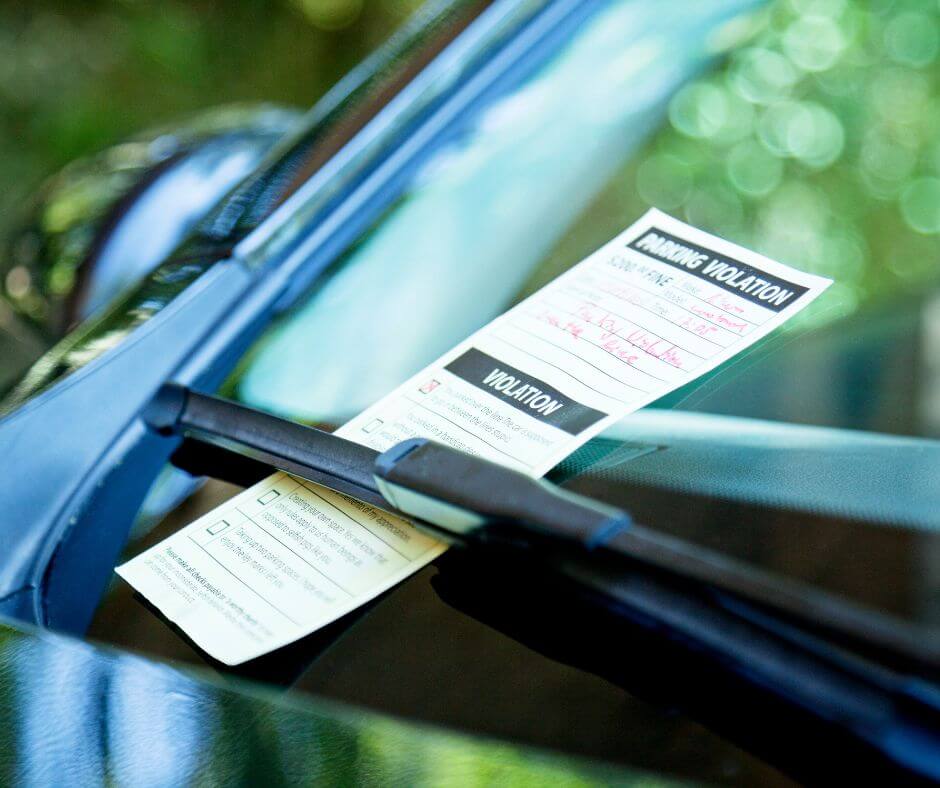A “boundary” is a line that divides one thing from another. In the physical world, the concept is simple enough. I’m standing in Texas. You’re standing in Mexico. The border between us is a boundary. Got it. Yet somehow when you transform the idea from physical boundaries into relationship boundaries, everything gets muddied up. Throw a divorce on top of that and you often end up mired in a whole lot of … dirt.
Yet, setting and maintaining healthy relationship boundaries both during and after your divorce is essential. They help you separate from your spouse in a more organized way. They also help minimize some of the divorce drama that happens when your boundaries are more like swiss cheese than solid lines.
In order to keep healthy boundaries throughout your divorce, though, you first need to know a few things about relationship boundaries.

What are Relationship Boundaries and Why Do You Need Them?
A relationship boundary is the invisible force that separates you from the other person you’re in a relationship with. That force determines how close you let the other person get to you, and vice versa. Your relationship boundaries are what regulate the give and take in any relationship. They define where you end and the other begins.
Healthy relationship boundaries are rooted in responsibility and self-esteem.
The more secure you are, and the more you love and respect yourself, the easier it will be for you to maintain and enforce healthy boundaries in your relationship. The more insecure and needier you are, the more your relationship boundaries will get blurred.
In a healthy relationship, the boundaries are clear. Both partners know exactly what is and what is not expected of each of them. They also understand that if they “cross the line” in their relationship, there will be consequences.
In short, healthy boundaries consist of 3 things:
- They’re CLEAR;
- They’re COMMUNICATED; and
- There are CONSEQUENCES for violating them.
What’s more, in a healthy relationship, boundaries are enforced. When one partner “breaks the rules” the other partner actually DOES something about it – even if that “something” is as simple as having a conversation about the fact that one person just walked all over the other’s boundaries.
The challenge is that no relationship is set in stone. They’re fluid. They change. When they do, their relationship boundaries have to change, too.
For example, what was okay to do while you were dating may not be okay anymore once you’re married. And what was okay while you were married is almost certainly NOT going to be okay once you’re divorced!

The Six Types of Relationship Boundaries that Need to Be Re-Negotiated in Divorce
Divorce changes your relationship in six fundamental areas:
1. Physical
Physical boundaries relate to your physical needs: eating, drinking, exercising, touching and sleeping. They also relate to your need for personal space.
When you’re married you might have compromised about some of these boundaries.
For example, if you’re a vegan and you were married to a carnivore, you probably had to have some serious conversations with your spouse about food. You had to figure out whether and how you were going to cook and eat together when the food you each ate was very different. You also had to navigate what the kids did or didn’t eat.
The same thing might have been true about your personal space. If you love traditional décor and your spouse prefers the modern, minimalist look, decorating your home probably involved some major negotiations.
When you divorce and you're no longer physically living with your spouse anymore, you can eat what you want when you want. You can decorate your house the way you want. Realizing that can be supremely liberating!
The challenge, though, comes during the “in-between” time when you’re still living with your spouse, but you wish you weren’t! Here’s why.
When you’re getting a divorce the gap between the life you WANT to have (but can’t have because you’re not divorced yet) and the life you ACTUALLY have hits you with the force of a semi barreling down the highway at 80 miles an hour.
Suddenly, the cluttered home you put up with for years becomes intolerable! The fact that your spouse insists on having dinner at exactly six o’clock every night when you’d rather eat later, now drives you crazy! And, as for your sleeping arrangements, sleeping together while you’re going through a divorce just seems weird!

2. Emotional
Emotional boundaries are all about how you feel. They relate to your energy and your emotions.
Not surprisingly, when you’re going through a divorce, the emotional boundaries you used to have in your marriage usually go right out the window.
For example, while you were married your spouse might have listened to you rant when you were mad, sad, or frustrated about something. When you’re going through a divorce, though, your spouse is not likely to be nearly as supportive. As a matter of fact, s/he might completely ignore how you feel or escape to go out with friends in order to avoid dealing with you and your moods.
That, in turn, only makes you feel worse. It also can drive you to become angry or needy, even if you weren’t normally that way before.
Alternatively, it may be that your spouse is the one who has suddenly become more clingy than overcooked spaghetti. You may be the one who feels like your spouse is constantly ignoring your boundaries by wanting to talk about your marriage ALL the time!
Or maybe you feel guilty because you were the one who decided to end the marriage. So, you try to make your spouse feel better by promising to give him/her the sun, the moon, and the stars in your divorce, even though doing that will leave you financially strapped for years afterward. (HINT: You’ll know you did this when a few months after your divorce you look back and wonder what you were smoking when you made that deal!)
3. Sexual
Sexual boundaries are about both sex and physical intimacy.
While it may seem obvious that divorce will change your sexual relationship with your spouse, that doesn’t always happen the way that you think it will.
There is no rule book about when you and your divorcing spouse should stop having sex with each other. As a matter of fact, sometimes the fact that your marriage is falling apart and you ARE going through a divorce makes you want to have sex with each other more! (Go figure.)
Or maybe you want to have one last “roll in the hay” just to make sure that getting a divorce is the right thing to do. Or maybe after a few drinks you decide that having sex one more time “for old time’s sake” is a good idea.
If both of you agree to have sex that may not seem like a boundary violation. The trouble is, it still blurs the lines of what is and isn’t okay in your relationship moving forward. That’s especially true if you’re hoping that sleeping together will lead to reconciling your differences, while your spouse is just looking to have a good time for one night.
Sexual boundaries also extend beyond just sex.
When you’re going through a divorce it suddenly gets awkward to hug or kiss your spouse anymore. When you have a conversation after one of you drops off the kids suddenly you don’t know whether you should shake hands, nod your head, or just walk away once the conversation is over.
The bottom line is: it’s awkward.

4. Intellectual
Intellectual boundaries involve your tolerance for your spouse’s ideas, beliefs, and values. (… and your spouse’s tolerance of yours!)
If you had good intellectual boundaries in your marriage, and you each respected the other’s views, this may not change too much during your divorce. But if you already had intellectual boundary issues in your marriage, getting a divorce is going to amplify those issues like a loudspeaker at a rock concert – especially if you have kids!
Nothing showcases values conflicts more than divorce.
Whereas you may have been able to overlook the fact that your spouse didn’t care that your kids ate cookies for breakfast while you were married, now that you’re getting a divorce that seems like borderline child abuse. And the struggle only gets more intense as the issues become more important.
For example, one area where parents are really clashing these days involves their kids’ medical care, treatment and – more specifically – vaccinations.
When one parent believes that getting a CoVid shot can be life-saving and the other believes it can be life-threatening, the stage is set for a major battle. If those parents are married, they HAVE to find a way to resolve that battle. Generally, that means that one of them changes their mind, closes their eyes, or just backs down.
When parents are divorcing, though, what started as a difference in values and beliefs escalates into a full-out war. It can also lead to even further boundary erosion as each parent becomes less tolerant of ANY of the other parent’s ideas or beliefs.
That, in turn, can lead to one parent belittling or even demonizing the other over their differences of opinion. And it makes co-parenting after divorce a real challenge.
5. Financial
Financial boundaries are all about money. Differences in how a couple handles money, or how they view money, tend to be amplified during a divorce.
Many spouses are not on the same page when it comes to money. It may even have caused their divorce. That's especially true when one spouse is a spender and the other is a saver. Or one makes more money than the other. Or one controls the family finances while the other is clueless.
All of those differences aren't just differences about money. They're differences about values.
Those differences in financial values tend to get amplified during a divorce. For example, one spouse might have tolerated the other’s over-spending during the marriage. But once a couple starts to divorce, that over-spending suddenly becomes a major issue. (NOTE: "Over-spending [like beauty] is in the eye of the beholder. What one person thinks is "spending too much" the other can think is "not spending enough!")
Let’s take the example of a couple where the more financially conservative spouse has always controlled the money. Once the marriage is dissolving, the other spouse WILL get access to cash at some point. (Sometimes that takes a court order that forces the controlling spouse to let the other spouse start managing his/her own funds! But, eventually, it will happen!)
When that happens, the spouse who suddenly gets access to cash will undoubtedly spend money in ways that makes the more conservative spouse crazy!The controlling spouse will accuse the other spouse of being a spendthrift, wasting money, and being irresponsible.
What's happening isn't crazy. It's just re-jiggering the couple's financial boundaries.

6. Time
Time boundaries involve the way you manage and use your 24 hours a day.
Although a lot of people don’t realize it, violating time boundaries can be a HUGE issue in divorce. Here’s why.
Getting a divorce is time-consuming. It’s like having a second full-time job. The problem is, the work that needs to be done to get through a divorce usually falls disproportionately onto one spouse more than the other.
For example, the spouse who managed the money in the family may be expected to put together the small mountain of financial documents required in divorce. Meanwhile, the other spouse may not have any documents to collect. So that spouse doesn’t have to waste his/her time doing the legwork that the first spouse has to suffer through.
The same thing happens when it comes to kids.
One spouse may expect the other one to always drive the kids everywhere, while the other spouse just waits for the kids to be dropped off at his/her house. Or one spouse is in charge of researching and figuring out which activities/camps/sports the kids will participate in as well as enrolling them in all of those things. Meanwhile, the other spouse doesn’t have to worry about any of that.
When a couple is married, dividing up the labor in a way that puts most of the kid responsibilities on one parent, and the bread-winning responsibilities on the other, might make sense. But after a couple divorces, that division of labor may no longer work the same way that it did when the couple was married.

How to Enforce Your Boundaries
Libraries of books and articles have been written about how to enforce your boundaries in various relationships. At their core, enforcing your boundaries boils down to the same three things:
Have CLEAR boundaries;
COMMUNICATE those boundaries to your spouse/friend/parent etc.
Impose CONSEQUENCES for violating those boundaries.
Many people mistakenly believe that “enforcing boundaries” is only about imposing consequences for violating them. But the truth is, you need all THREE elements of a boundary to enforce it.
First, you can't enforce a boundary unless you have one. That means you need time to think about, and create your boundaries.
Second, you have to communicate those boundaries to others (i.e. your spouse!). If you don't communicate your boundaries, your spouse won't know they exist. Then when s/he violates your boundaries YOU will look like a crazy person for going off on your spouse for what will look like "no reason."
(NOTE: Although many of us expect our spouses to be mind-readers, the truth is: they’re not.)
Finally, there has to be a clear, communicated consequence for violating your boundary. And you have to be willing to follow through and impose that consequence – even when it’s hard!
So, for example, you may have a financial boundary that says that you and your spouse can't buy anything over $1000 during your divorce without telling each other about it. If your spouse then buys something over $1000 and doesn't tell you about it, that's a boundary violation!
At that point your solution may be to either have a conversation with your spouse - or your lawyer - to set things straight!
(NOTE: In high conflict divorces, your "boundaries" may need to be in court orders.)

What Happens When Boundaries Are Violated
For most people, boundary violations are fuzzy things. That’s because, unless you happen to be a coach or a mental health professional, you probably don’t spend much time thinking about relationship boundaries.
But when one of your own boundaries gets violated – you know it! You get that creepy, crawly, frustrating feeling like you’ve just been taken advantage of. You may not totally understand what happened. But on some level you feel like you’ve been f….d.
Depending upon your own psychological makeup, you’re either going to react to the boundary violation by getting angry (you can’t do that to me!) or becoming over-the-top passive (yeah, you just annihilated my feelings but, that’s okay!). (Btw, even if you’re passive at first, eventually you will start to resent the boundary-violator. So, one way or another, you’re going to end up being mad!)
On the other hand, you may be one of those rare, highly-evolved humans who actually identifies what’s going on, has a conversation with their spouse or ex about it, and then calmly enforces their boundary. If you can do that, even during a divorce, know that you have totally nailed the whole boundary concept!
If, like the rest of us ordinary humans, you struggle with maintaining your boundaries at times (especially with your ex!) don’t panic.
Learning to create and maintain healthy boundaries – especially with your ex or soon-to-be-ex – usually takes time. It takes practice. But that’s exactly WHY it’s so important to start doing it WHILE you’re going through your divorce!
Waiting until after you and your spouse are already divorced to start setting your boundaries only makes enforcing them later that much harder.

